
circPARD3 drives malignant progression and chemoresistance of laryngeal squamous cell carcinoma by inhibiting autophagy through the PRKCI-Akt-mTOR pathway
Application of Whole Transcriptome Sequencing in Cancer Research


Laryngeal squamous cell carcinoma (LSCC) is the second most common malignant tumor in the head and neck. Autophagy plays a critical role in cancer progression and chemoresistance. However, the function and mechanism of circRNA in autophagy regulation of LSCC remain unclear.
Here, we present a paper titled "circPARD3 drives malignant progression and chemoresistance of laryngeal squamous cell carcinoma by inhibiting autophagy through the PRKCI-Akt-mTOR pathway" conducted by Wei Gao, Huina Guo, Min Niu, et al. This study integrated whole transcriptome sequencing with technical assistance from Novogene. Leveraging the advancement of circRNA sequencing, small RNA sequencing, and mRNA sequencing, the authors not only reveal the oncogenic role of circPARD3 in LSCC, but also indicate that circPARD3 can serve as a new biomarker and target for autophagy detection and modulation, which might be used for controlling autophagy levels in different developmental stages of LSCC.
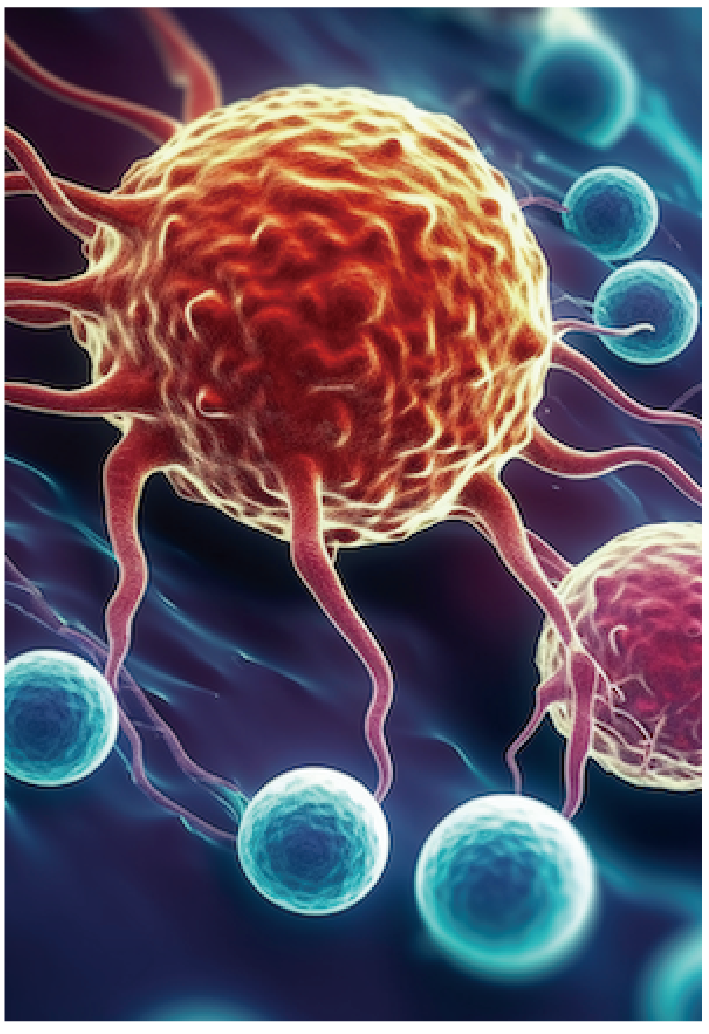

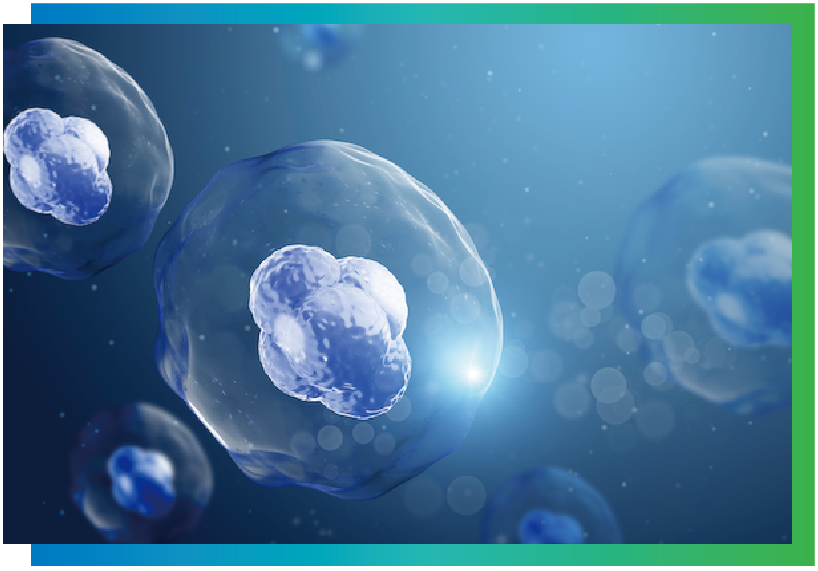
circRNAs are a class of covalently closed circular RNA molecules, which are more stable than linear RNAs because they are unaffected by RNA exonuclease. circRNA expression has tissue and cell specificity, playing an important regulatory role in various physiological and pathological processes. Therefore, circRNAs have unique advantages as markers for disease diagnosis and prognosis. circRNAs can function as a miRNA sponge to specifically bind miRNAs, which will relieve the inhibitory effects of miRNA on downstream target genes, thus upregulating the expression levels of the target genes.
Previous studies indicate that circRNAs are involved in regulation of autophagy in several diseases such as breast cancer, sciatic nerve injury, and cerebral ischemic stroke. However, the regulatory relationship between circRNAs and autophagy and the clinical significance of autophagy-related circRNAs in diagnosis and treatment of LSCC are rarely reported before this research.

In this study, 107 LSCC and paired adjacent normal mucosa (ANM) were used for whole transcriptome sequencing. Differentially expressed circRNAs, miRNAs, and mRNAs were analyzed. In addition, miRNA and mRNA binding prediction was performed, and some validation was conducted on the results. The specific research pipeline is provided in the following flowchart.
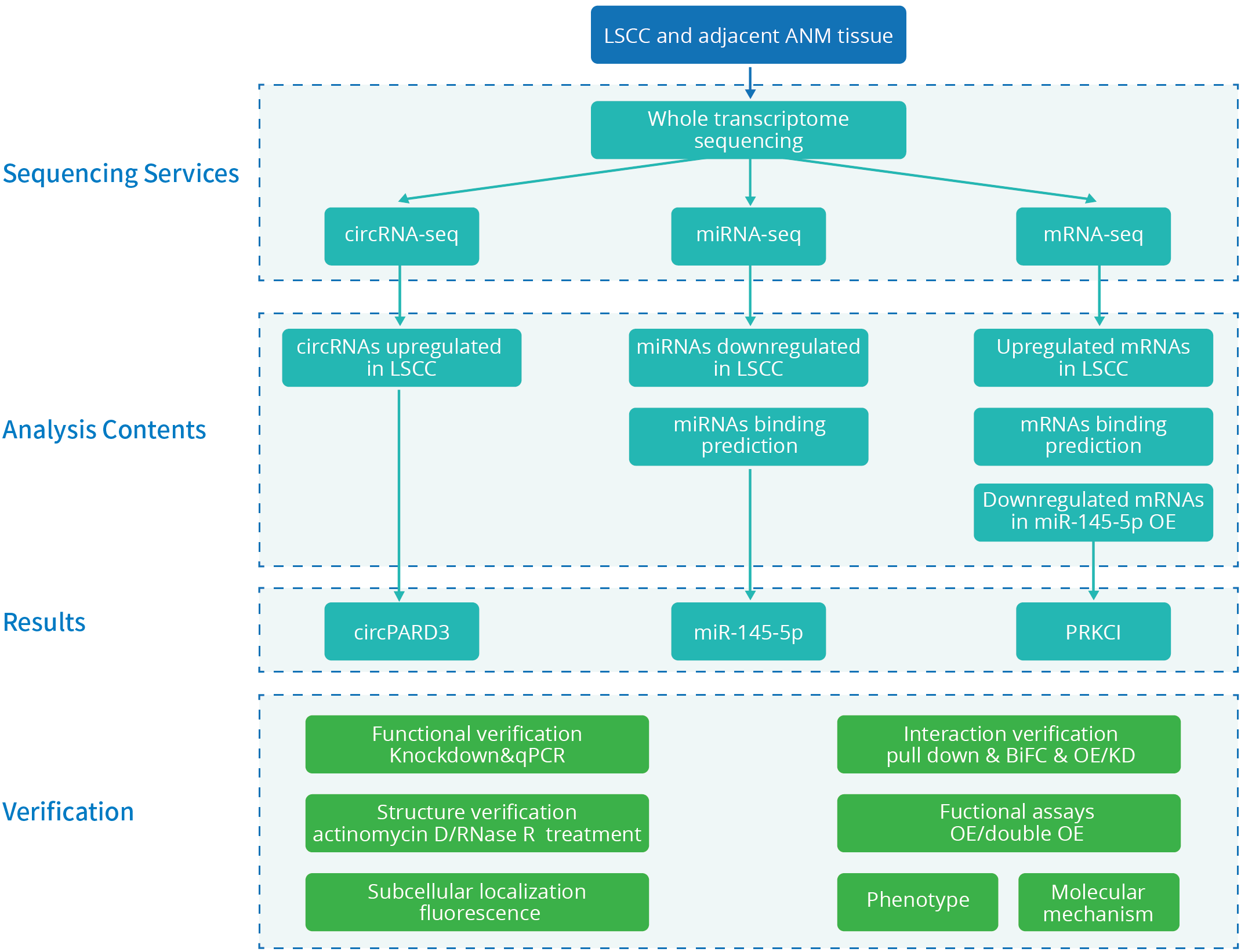

Results of this research can be summarized with this schematic illustration. The illustration indicates the mechanism by which circPARD3 inhibits autophagy to promote malignant progression and chemoresistance of LSCC via activating the PRKCI–Akt–mTOR pathway.
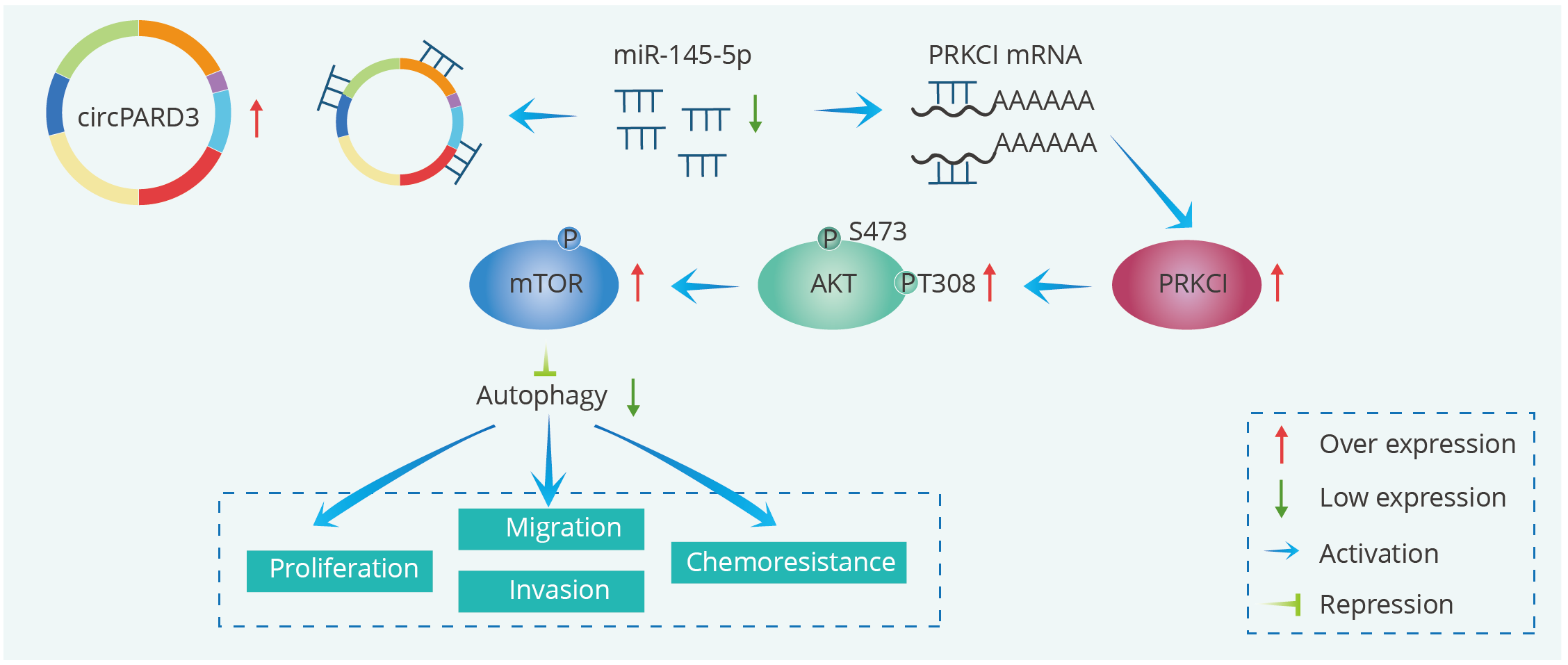
Briefly, circPARD3 was formed by back-splicing of exons 16–22 of human PARD3 mRNA. In LSCC, circPARD3 expression was significantly higher than control cells. circPARD3 acted as an upstream regulator, sponging the tumor suppressor miR-145-5p. Functioning as a driver gene in LSCC, PRKCI is also a direct target gene of miR-145-5p, and it will be downregulated by miR-145-5p. Therefore, by sponging miR-145-5p, circPARD3 upregulates PRKCI expression. PRKCI inhibits autophagy by activating the Akt-mTOR signaling axis, and promotes proliferation, migration, invasion and chemoresistance in LSCC cells.

This study reveals that the novel autophagy-suppressive circPARD3 promotes LSCC progression and chemoresistance through the PRKCI-Akt-mTOR pathway, providing new insights into circRNA-mediated autophagy regulation and a potential biomarker and target for LSCC treatment.

Wei Gao, Huina Guo, Min Niu, Xiwang Zheng, Yuliang Zhang, Xuting Xue, Yunfeng Bo, Xiaoya Guan, Zhongxun Li, Yujia Guo, Long He, Yu Zhang, Li Li, Jimin Cao, and Yongyan Wu. circPARD3 drives malignant progression and chemoresistance of laryngeal squamous cell carcinoma by inhibiting autophagy through the PRKCI-Akt-mTOR pathway. Molecular Cancer. 2020; 19: 166. doi: 10.1186/s12943-020-01279-2.
Let’s Talk about Your NGS Project
(Fields marked with an * are required)
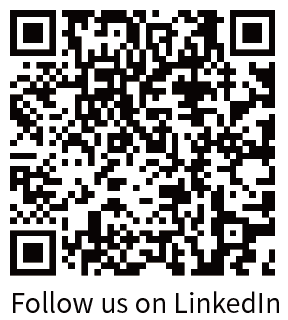
Novogene Corporation Inc.
![]() 916-252-0068-383
916-252-0068-383
![]() inquiry_us@novogene.com
inquiry_us@novogene.com
![]() www.novogene.com
www.novogene.com
Copyright©2011-2023 Novogene Corporation
All Rights Reserved. Information and specifications are subject to change at any time without notice.
